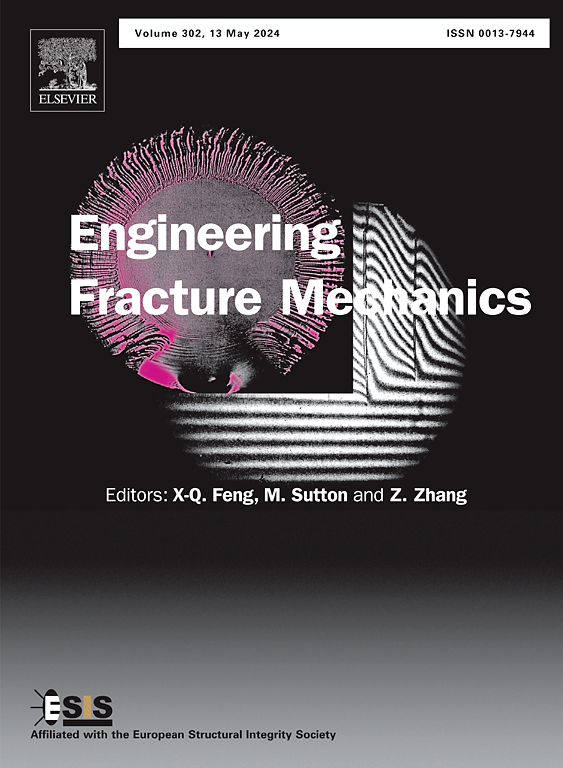Experimental investigation and mechanistic analysis of temperature-dependent fractures and failure of lithium-ion battery under indentation loads
IF 4.7
2区 工程技术
Q1 MECHANICS
引用次数: 0
Abstract
Lithium-ion batteries (LIBs) are widely used in electric vehicles and energy storage systems, yet their mechanical and electrochemical behaviors under mechanical abuse remain insufficiently understood, particularly at different ambient temperatures. This study investigates the temperature-dependent responses of commercially available pouch LIBs subjected to indentation loads. Mechanical tests were conducted under continuous and interrupted loading conditions across a wide temperature range, from −30 °C to 70 °C, simulating both normal and extreme operating environments. The results reveal distinct failure patterns: at low temperatures, premature electrical failure occurs due to localized separator damage, while higher temperatures lead to synchronized internal short circuit initiation and catastrophic structural failure. Consequently, the electrical failure threshold exhibits an initial rise followed by a decline as the temperature increases. Post-mortem analysis identifies a progressive failure process at sub-zero temperatures, ranging from microcracks and localized separator fractures to catastrophic failures, depending on the timing of loading termination. Correlations between electrical performance and mesoscopic structural deformation are discussed, highlighting that batteries at lower temperatures are prone to performance degradation even without electrical failure. These findings provide valuable insights for temperature-specific safety assessments of LIBs.
求助全文
约1分钟内获得全文
求助全文
来源期刊
CiteScore
8.70
自引率
13.00%
发文量
606
审稿时长
74 days
期刊介绍:
EFM covers a broad range of topics in fracture mechanics to be of interest and use to both researchers and practitioners. Contributions are welcome which address the fracture behavior of conventional engineering material systems as well as newly emerging material systems. Contributions on developments in the areas of mechanics and materials science strongly related to fracture mechanics are also welcome. Papers on fatigue are welcome if they treat the fatigue process using the methods of fracture mechanics.

 求助内容:
求助内容: 应助结果提醒方式:
应助结果提醒方式:


